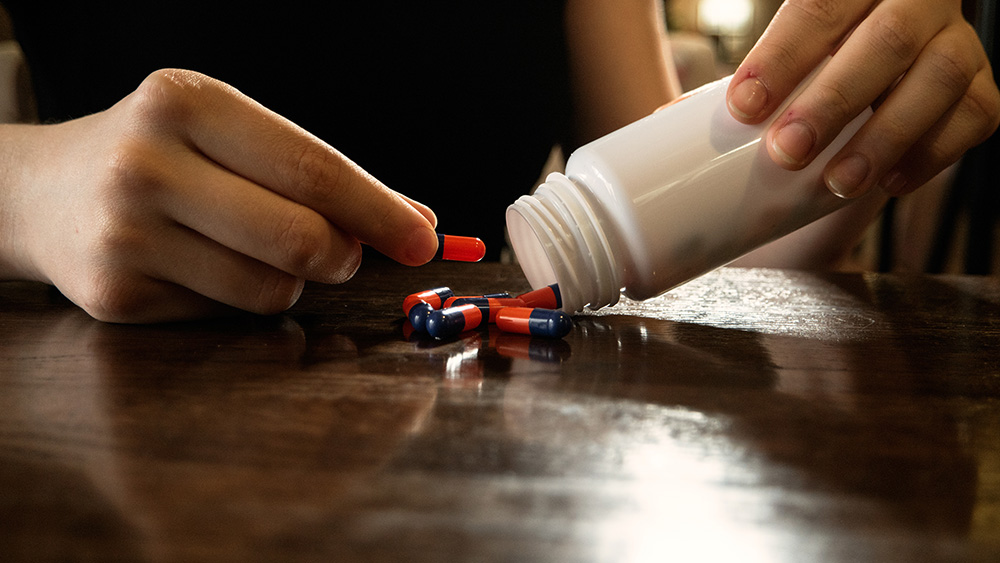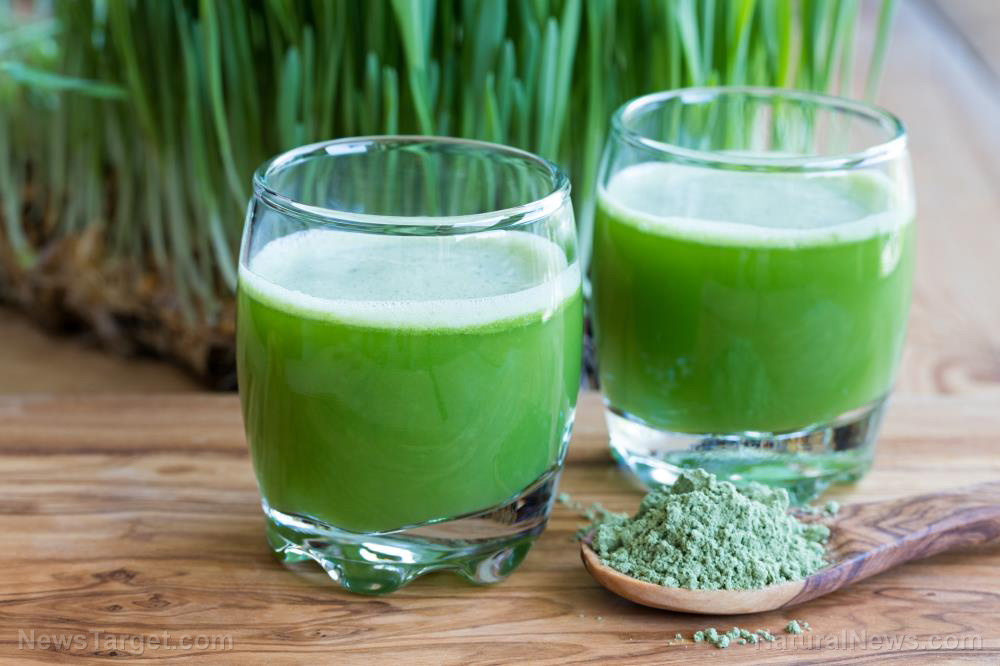Using artificial sweeteners for weight loss can increase diabetes risk, warn researchers
02/03/2023 / By Zoey Sky

Maintaining a healthy weight is necessary for your overall well-being. Some people are using artificial sweeteners thinking it will help them lose weight.
But according to a review, using artificial sweeteners for weight loss can increase your risk of developing diabetes. Using artificial sweeteners to reduce your calorie intake can also affect your gut health, warned health experts.
Artificial sweeteners linked to changes in gut health and elevated glucose levels
In a review published in the journal Endocrine Practice, researchers analyzed studies that focused on the long-term and neurohormonal effects of artificial sweeteners such as aspartame, saccharin and sucralose.
According to the review findings, acute and chronic users of artificial sweeteners experienced changes in their gut microbiome, pointing to an inflammatory pattern of gut microbiota.
The older study published in the journal Nature also had similar and alarming conclusions.
Data showed that even non-caloric sweeteners can still damage gut health. In some cases, the use of sweeteners also caused glucose intolerance in mice and some people.
The research team reported that these observed changes were nearly identical to the gut changes previously associated with health issues like diabetes and obesity in humans.
While conducting the Nature study, scientists discovered that the animal subjects that received a 10 percent solution of one of three commonly used artificial sweeteners (aspartame, saccharin or sucralose) had elevated glucose levels in their blood after 11 weeks compared to the mice that were given plain water or even a 10 percent glucose solution.

Elevated glucose or hyperglycemia is linked to health issues like insulin resistance, diabetes, early heart disease and other serious health complications. Hyperglycemia has also been associated with a higher incidence of mortality.
Data revealed that saccharin had the most pronounced effects on gut health out of the three artificial sweeteners used. However, all three affected the microbiome and, eventually, glucose levels.
In follow-up experiments, the animal subjects were given a high-fat diet and a 10 percent saccharin solution.
The resulting changes in glucose metabolism reproduced the results found when the mice were fed a regular diet and a much higher saccharin dose. This suggests that higher fat consumption could worsen saccharin’s metabolic impact.
Results of metagenomic sequencing showed that animal subjects that received saccharin had a different gut bacteria profile compared to the mice that received water or a glucose solution. The researchers were then able to identify a specific microbe-mediated mechanism that let the artificial sweeteners affect glucose metabolism among the test subjects. (Related: Not so sweet: Study links artificial sweeteners to liver damage.)
High blood glucose increases diabetes and diabetes risk
The researchers also observed a similar metabolic response and change in gut bacteria in humans.
The research team observed 381 non-diabetic volunteers who answered questions about their eating habits. The volunteers who reported that they used artificial sweeteners also had higher fasting glucose levels.
The same volunteers also exhibited poorer glucose tolerance and altered gut microbe profiles compared to the people who did not use artificial sweeteners.
These differences were more noticeable when people consumed higher amounts of artificial sweeteners. The differences also persisted even when the results were corrected for body mass index (BMI).
The results of the animal studies and human trials confirm that using artificial sweeteners that are allegedly safe can cause health issues like diabetes and obesity instead of helping you prevent these conditions.
The connection was hinted at in previous studies, but the Weizmann experiments are crucial because they provided concrete evidence on how exactly these sweeteners alter the population of intestinal bacteria.
Having a healthy gut bacteria profile is crucial because these microbes direct metabolism and convert the food you eat into energy for your body or as stored fuel for later use.
Despite the adverse effects linked to artificial sweeteners, these food additives are some of the most widely used worldwide. People who are unable to tolerate sugar and others who are trying to lose weight often consume products containing these alternative sweeteners.
Tips for enjoying desserts if you have diabetes
If you have diabetes, it can be a struggle if you want to follow a balanced diet but enjoy the occasional dessert.
Instead of depriving yourself of your favorite foods and binge eating, improve your eating habits and be disciplined so you can have a bit of cake and eat it too.
Get smaller portions
If you have diabetes, you can still have desserts, but in moderation. This means you can get some cake, but ask for a smaller slice or share it with somebody.
If you are eating at home, cut baked goods into smaller pieces so you don’t overeat.
Swap carbs
If you want to have some dessert, skip a starchy vegetable or other carbohydrates at mealtime.
Skipping a carbohydrate serving during your main meal can help you avoid spiking your blood sugar levels when you eat dessert later.
Keep in mind that this is only something you should do occasionally since most starches in your main meal, like a serving of potatoes, are probably going to be more nutritious than dessert.
Prepare homemade desserts
By making desserts at home, you can control the ingredients that you use to make the dessert. This means you can substitute ingredients, like whole-grain flour instead of all-purpose flour, to make the dessert fit into your diet plan.
Making desserts at home also helps you avoid buying packaged sweets and desserts that usually contain many harmful additives.
Eat dark chocolate
Dark chocolate with no added sugar may offer benefit if you have Type 2 diabetes.
Chocolate offers several potential health benefits, such as helping control blood sugar levels. According to a study paper published in 2017, chocolate could have some benefits for managing Type 2 diabetes.
But researchers also warned that many manufacturers add a lot of sugar to their products, which can be bad if you have diabetes.
If you’re craving something sweet, eat dark chocolate in moderation. Dark chocolate is also very rich, making it easy to satisfy your craving without eating too much chocolate.
Snack on fruit and fruit salads
Fruits are high in sugar, but they also contain many nutrients like vitamins and fiber.
According to the American Diabetes Association, you can eat fruit or fruit salads as a way to satisfy cravings for sweets.
If you have diabetes, make sure you choose fresh, frozen or fruit canned in water instead of fruit salads canned in sugary syrups.
Avoid the harmful side effects of artificial sweeteners to reduce your risk of developing diabetes. Instead, improve your eating habits and snack on fresh fruits.
Visit Sweeteners.news to read more articles about the adverse effects of aspartame and other artificial sweeteners.
Watch the video below for tips on how to prevent and control diabetes.
This video is from the Health Care channel on Brighteon.com.
More related stories:
Study links use of artificial sweeteners to increased cancer risk.
Artificial sweeteners INCREASE risk of cardiovascular disease, confirms new study.
Sources include:
Submit a correction >>
Tagged Under:
artificial sweeteners, aspartame, blood sugar, diabetes science, fight obesity, glucose metabolism, insulin resistance, metabolic health, obesity, products, research, saccharin, sucralose, sugar substitutes, toxic ingredients, Type 2 Diabetes
This article may contain statements that reflect the opinion of the author




















